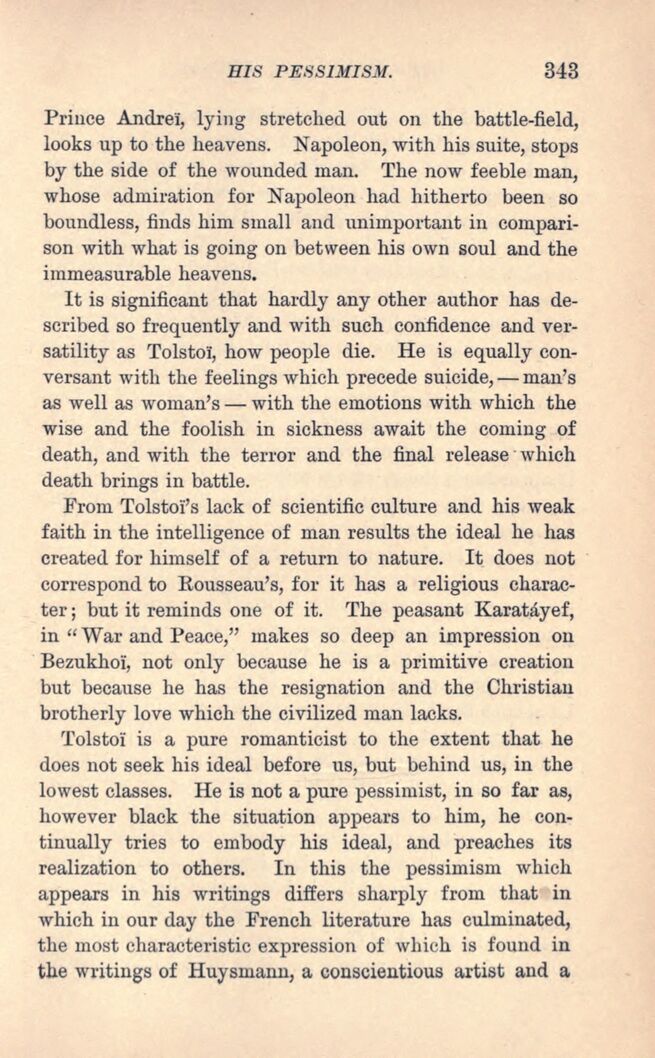
Full resolution (JPEG) - On this page / på denna sida - Impressions of Russian Literature - VII

<< prev. page << föreg. sida << >> nästa sida >> next page >>
Below is the raw OCR text
from the above scanned image.
Do you see an error? Proofread the page now!
Här nedan syns maskintolkade texten från faksimilbilden ovan.
Ser du något fel? Korrekturläs sidan nu!
This page has been proofread at least once.
(diff)
(history)
Denna sida har korrekturlästs minst en gång.
(skillnad)
(historik)
Prince Andreï, lying stretched out on the battle-field,
looks up to the heavens. Napoleon, with his suite, stops
by the side of the wounded man. The now feeble man,
whose admiration for Napoleon had hitherto been so
boundless, finds him small and unimportant in comparison
with what is going on between his own soul and the
immeasurable heavens.
It is significant that hardly any other author has
described so frequently and with such confidence and
versatility as Tolstoï, how people die. He is equally
conversant with the feelings which precede suicide, — man’s
as well as woman’s — with the emotions with which the
wise and the foolish in sickness await the coming of
death, and with the terror and the final release which
death brings in battle.
From Tolstoï’s lack of scientific culture and his weak
faith in the intelligence of man results the ideal he has
created for himself of a return to nature. It does not
correspond to Rousseau’s, for it has a religious
character; but it reminds one of it. The peasant Karatáyef,
in “War and Peace,” makes so deep an impression on
Bezukhoï, not only because he is a primitive creation
but because he has the resignation and the Christian
brotherly love which the civilized man lacks.
Tolstoï is a pure romanticist to the extent that he
does not seek his ideal before us, but behind us, in the
lowest classes. He is not a pure pessimist, in so far as,
however black the situation appears to him, he
continually tries to embody his ideal, and preaches its
realization to others. In this the pessimism which
appears in his writings differs sharply from that in
which in our day the French literature has culminated,
the most characteristic expression of which is found in
the writings of Huysmann, a conscientious artist and a
<< prev. page << föreg. sida << >> nästa sida >> next page >>